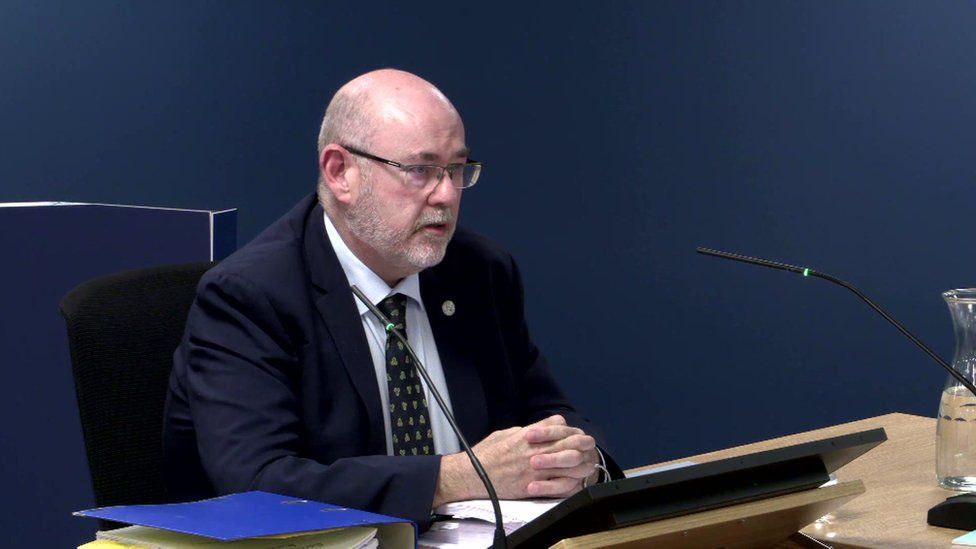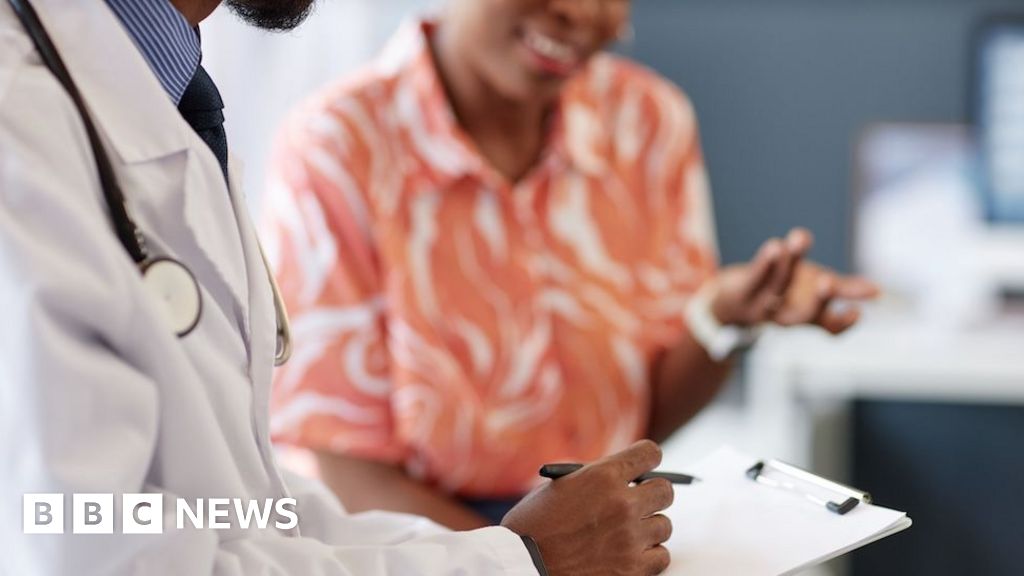ARTICLE AD BOX

Prof Jim McManus, from the Association of Directors of Public Health, said communication from central government was "less than optimal" during the pandemic.
By Jim Reed
Health reporter
The government's plans for dealing with Covid were "unclear" with some local health officials only hearing about policy changes from TV news conferences, the Covid Inquiry has heard.
Prof Jim McManus, president of the Association of Directors of Public Health (ADPH), said communication from central government had been "lacking".
A national system for tracing infected contacts was set up from scratch, instead of building on local teams which already existed, he said.
"For the first few months of the pandemic, there were parts of central government that did not have a mailing list to reach out to directors of public health so they physically couldn't contact us," he added.
The ADPH represents more than 160 directors of public health across the UK who work on health protection and emergency response, often alongside the police, fire service and other officials.
In England they are employed by local councils, while in Scotland and Wales they work for individual NHS boards. The director of public health in Northern Ireland is a civil servant working for ministers.
'No response or communication'
Prof McManus told the Covid Inquiry on Wednesday that, as the virus emerged, it quickly became apparent that some national officials had "not read their own guidance" and were not clear about the role of local public health officials.
"Sometimes we had no response or communication and we found out at the same time as the rest of the population on the 5pm [Downing Street news conference] bulletin about new guidance," he said.
He suggested that the importance of local teams was often overlooked, particularly at the start of the pandemic, as the government tried to set up a "parallel" national system for contact tracing and isolation.
"We had trained experts in some of these areas," he added.
"We know our local areas and our local communities. Putting a vaccine centre in a golf club a mile-and-a-half from a deprived area with no public transport is something we could help areas avoid."
Later, when some local authorities took on test and trace responsibilities, there was a "marked improvement" in how the system operated, Prof McManus claimed.
He said the pandemic was too often thought of as an NHS problem rather than a public health problem, giving the example of plans to move community health visitors into hospitals to treat Covid patients.
"Health visitors do vitally important work protecting very vulnerable children," he said.
"If you'd removed every health visitor in England and deployed them to a Covid ward, there would have been significant safeguarding risks and children could have been harmed."
He described plans to deal with a pandemic and reduce the impact on the more vulnerable parts of society as "not sufficient nationally, at any level of the system."
Image source, Press Association
Image caption,Scotland's former chief medical officer, Dr Catherine Calderwood, said planning for a pandemic is difficult given staffing pressures in the health service
Earlier in the day, Scotland's former chief medical officer Dr Catherine Calderwood said that pressure on Scotland's health service has made it "extremely difficult" to plan for a future pandemic.
Dr Calderwood resigned in April 2020 after travelling to her holiday home in breach of Covid rules at the time.
"If you take my own area - the labour ward - the babies keep coming day and night, and we don't have the luxury of saying 'there's going to be an exercise where we're going to send six of you for mask fitting', for example," she told the inquiry.
Giving evidence, Mark Woolhouse, professor of infectious disease epidemiology at the University of Edinburgh and an adviser to the Scottish government in the pandemic, said the UK had "prepared for the wrong exam" by focusing on the threat of an influenza pandemic in the decade before Covid.
"It's possible that next time, and there will be a next time, we'll be dealing with a virus which is much more deadly and much more transmissible," he said.
"I'm not sitting here as a doom monger saying this is or isn't going to happen soon.
"But I'm confident enough to tell government that this is something we should be concerned about and should be prepared for," Prof Woolhouse added.
What is the Covid Inquiry?
- It is about going through what happened and learning lessons
- No-one will be found guilty or innocent
- Any recommendations made do not have to be adopted by governments
- The inquiry has no formal deadline but is due to hold public hearings until 2026
- Scotland is holding a separate inquiry in addition to the wider UK one
Related Internet Links
The BBC is not responsible for the content of external sites.

 1 year ago
38
1 year ago
38








 English (US) ·
English (US) ·